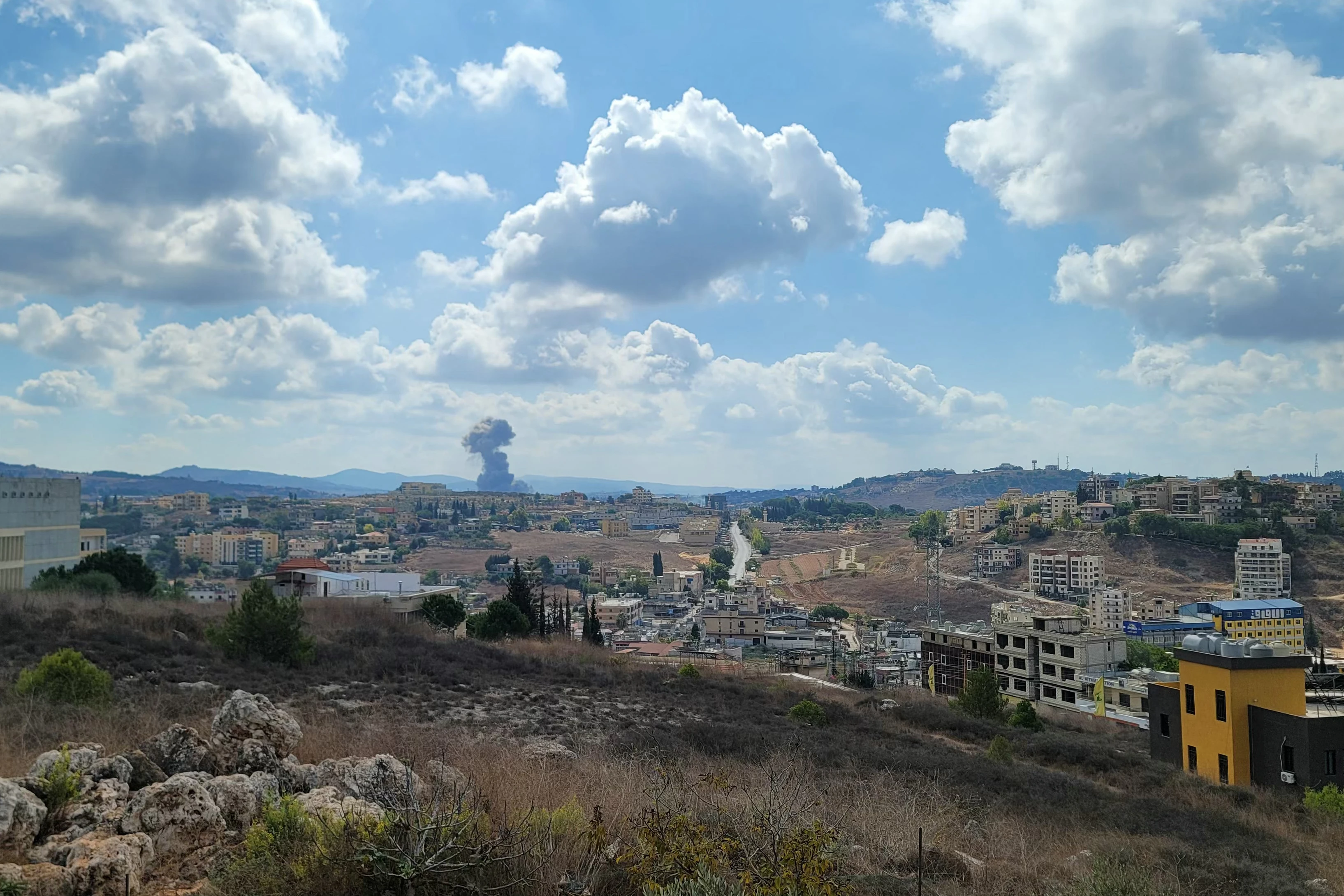Israeli strikes cut off vital Syrian lifeline near Lebanon border

Stay tuned with 24 News HD Android App

When Israel bombed the Lebanese-Syrian border, it cut off a key route for many in Syria who rely on it as a vital link to the outside world.
For years, Lebanon's main border crossing with Syria has served as a key access point for international travel, healthcare and purchasing imported goods.
Today, those who wish to use the crossing known as Masnaa must climb down into and walk across a massive crater in the road, which is 10 metres (32 feet) deep and 30 metres (nearly 100 feet) wide.
Israel hit near the crossing on October 4, accusing Lebanese militant group Hezbollah of using it to transport military equipment from its main backer Iran, through its ally Syria, and into Lebanon.
But the strike has made it harder for thousands of people trying to flee war in Lebanon to Syria.
The Israel-Hezbollah war erupted late last month after nearly a year of exchanges of fire over the war in Gaza.
Earlier this month, after undergoing surgery in the Syrian capital, Reem al-Ajami, a 67-year-old Syrian woman, hired a car to drive to the crossing to try to reach Beirut for a flight to visit her daughter in Greece.
Vital for trade
Athens, like many other international destinations, has not been serviced by Syria's airports since the start of the country's civil war in 2011.
"When we reached the crater, Red Crescent volunteers helped me cross it in a wheelchair," Ajami told AFP, saying she saw hundreds of people traveling in the opposite way to escape the war in Lebanon.
Her luggage was carried by hired help across the ditch that was so ragged that she said she almost fell off her wheelchair as she was pushed through.
Another driver was waiting on the other side to transport Ajami to Beirut's airport.
The land journey cost Ajami $400 dollars -- more than the $320 plane ticket she purchased from Beirut to Athens, she said.
The crossing is located on the main international road linking Beirut and Damascus.
In Lebanon, Israeli warplanes have pounded the area around the road as part of their campaign against Hezbollah.
Despite the strikes, Lebanon says more than 460,000 people have crossed into Syria since September 23, most of them Syrian nationals.
"Before, the trip cost between $100 and $150. Today, it is between $400 and $500," Ali al-Mawla, a 31-year-old taxi driver, told AFP.
Black market
"You have to change cars, cross the crater, and face the dangers on the road," Mawla said, explaining why no driver would accept less than triple the journey's initial cost.
Business, however, has not slowed because the road is vital "for both countries", Mawla said, as it acts as the key artery for Lebanon's exports.
With their country under sanctions, Syrians have relied on the crossing to travel to Lebanon, where they can submit a visa application in embassies that have deserted Damascus, or stock up on medicines and consumer products they can't find back home.
"Our cars heading to Damascus were always loaded with foreign medicines, unavailable technical equipment, and fuel tanks," Mawla said.
The strike has also impacted the Syrian economy, with fuel shortages boosting a black market that has long relied on smuggling routes from Lebanon to beef up supply.
Since the strike on Masnaa, the price of one liter of fuel has climbed from 20,000 Syrian pounds (around $1.50) to 30,000, an increase that has also caused a spike in transport costs.
